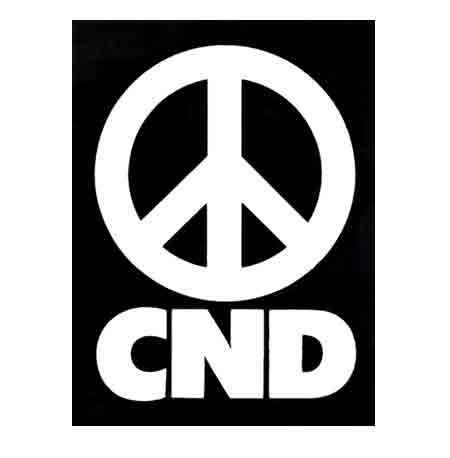WE MENTIONED the other day that there were two pieces in this week’s Tablet magazine about Amnesty International’s decision to adopt a pro-abortion policy. The other article is predominantly about the decision of the English Bishop of East Anglia Michael Evans to resign after 30-odd years with the organisation, but it also touches on a couple of other issues; one of which is a brief comment attributed to Amnesty International member and veteran campaigner Bruce Kent (pictured below), which, if correct, I find a little odd coming from a campaigner of his pedigree.
 According to the Tablet, Mr Kent is optimistic that a way forward can be found to allow Amnesty International members opposed to abortion to remain members if their contributions and efforts were not used to support the pro abortion policy (I do not believe this to be in any way feasible, but the logistics of that is not my concern here).
According to the Tablet, Mr Kent is optimistic that a way forward can be found to allow Amnesty International members opposed to abortion to remain members if their contributions and efforts were not used to support the pro abortion policy (I do not believe this to be in any way feasible, but the logistics of that is not my concern here).
Bruce Kent is a man of peace and I am sure that his suggestion - if it is his - comes from his innate conciliatory desire. But the suggestion necessitates Amnesty International becoming a very broad church to accommodate the vastly different views of human rights, and it makes the argument from a relativist viewpoint: where everyone’s view is right and truth is only a matter of perspective.
Basing a human rights organisation on the premise that all truths are equally valid is both dangerous and self-destructive. At first, it might seem attractive: we'd get a warm and fuzzy feeling getting along just fine, interpreting laws, conventions and charters in the loosest possible way so that we can even get round that irritating "right to life" phrase that once seemed quite simple. But if a human rights organisation cannot itself agree on the basic truth about the nature of human rights and, by extension, it sanctions the position that all interpretations of human rights are equal and truthful, then the organisation has made itself obsolete: it has accepted there can never be any actual abuse of human rights as those rights themselves can never be objectively defined. This, in part, is what makes Amnesty's abortion move so irrational and illogical.
Twenty years ago the then Catholic priest Monsignor Kent was a leading light in the Campaign for Nuclear Disarmament (he is still Vice President of CND), but he also wished to stand for the UK parliament. Canon Law prevents priests from standing for political office and Kent was forced to choose between his political ambitions and his active ministry: he chose the former and was laicised. He has championed Amnesty International and human rights in the past and has demonstrated the courage of his convictions on many occasions. I do not share his views on nuclear disarmament, but I recognise him as a man of principle, and admire him for that.
the former and was laicised. He has championed Amnesty International and human rights in the past and has demonstrated the courage of his convictions on many occasions. I do not share his views on nuclear disarmament, but I recognise him as a man of principle, and admire him for that.
I would doubt, therefore, that Mr Kent would be willing to continue to support CND if it adopted a policy that campaigned for some countries to have nuclear arms in "certain circumstances" (a phrase du jour of the AI leadership). I would guess that the main opposition to the policy would not be about whether monetary contributions were spent on a pro-weapons campaign - although this would be a factor, but rather the fact that the policy betrayed the underlying principle of the organisation.
For many people that is exactly what has happened to Amnesty International: many of us believe that the fundamental human right is the right to life and abortion denies the unborn humans that right. For those of us who believe that abortion is an anathema to human rights, it is with a heavy heart that we have to accept we can no longer support Amnesty International as it now stands. We must look for other organisations to support while we campaign and hope that Amnesty International eventually sees sense and reverses its pro-abortion policy. We cannot remain with the organisation as Mr Kent is said to have suggested.



2 comments:
But isn't access to safe abortions just another part of access to safe medical care for women?
That is to say in societies ruled with state sanctioned rape, isn't it a woman's right to reclaim her body from the violation any way she can, even if that means abortion.
But that equates abortion with any other medical procedure. Abortion involves another human being - a completely innocent one - even Amnesty is saying that there is a possibility human life starts long before birth.
State sanctioned rape is wrong and evil - that's not up for debate...but two wrongs don't make a right. And abortion punishes the innocent child for the crime of its father.
Post a Comment